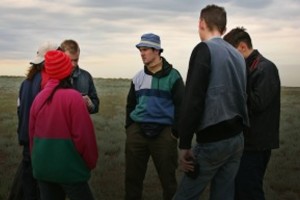
Jurors Usually Volunteer Their Service Reluctantly
There’s a reason why we summon people for jury service; if we waited for people to volunteer on their own, we wouldn’t conduct many trials. Potential jurors respond to their summons with an amazing variety of excuses in an effort to avoid serving altogether. I think I’ve heard just about every excuse that can be presented. It’s safe to say that most people don’t want to serve on a jury.
Jurors Usually Struggle to Add Service Into the Balance of Their Lives
For most of us, our hesitance to engage the responsibility of a jury trial comes down to time limitations. It’s difficult to squeeze in yet another task when most of us already have too many pressing responsibilities. This is the overwhelming objection most potential jurors offer: “I am a single parent, so I just don’t have time,” or, “I am starting a new business and I can’t leave it right now”. No one wants their life consumed by a jury trial. My cold cases typically take many weeks to prosecute. It’s difficult to get people to commit to lengthy service of this nature.
Jurors Usually Recognize the Importance of Their Service
The judges I know seldom accept any of the excuses offered by potential jurors. First and foremost, judges typically remind jurors that there’s a reason we call it jury “duty”. All of us, as citizens, have a responsibility (a civic duty actually) to be actively involved in the system that provides for our safety and wellbeing. We all benefit from this system, so we should all be ready and willing to contribute something. When jurors are reminded of their duty as citizens, most reluctantly accept their personal civic responsibility.
Jurors Usually Feel Great About Their Service After the Fact
After every homicide trial, I spend time with the jurors to thank them and answer any questions they might have had about the trial. Even those jurors who were initially hesitant to serve on our panel are usually delighted and satisfied with their service after the trial is over. Sometimes it’s difficult to properly understand the value of an endeavor until you’ve completed the task. I think most jurors would agree that the true value of their effort was most apparent after the verdict was rendered.
You may not be a criminal case maker, but if you’re a Christian, you’ve been called to make a case for what you believe. It’s not optional; every one of us is called to offer a reason for the hope we have. Share on X
You may not be a criminal case maker, but if you’re a Christian, you’ve been called to make a case for what you believe. It’s not optional; every one of us is called to offer a reason for the hope we have (1 Peter 3:15). Before you step out as a case maker, however, think about the nature of your “jury”. Most of the skeptics, seekers (and even Christians) in your life share the aforementioned characteristics. They rarely examine the evidence for God’s existence voluntarily; most folks see this as tedious, difficult work that interferes with their other personal responsibilities and duties. Who has time to read all those philosophers, scientists and great thinkers? We’re all too busy with work, family and other responsibilities! In addition, we can’t summon or compel people to stop their lives to examine the case for Christianity the way we can summon jurors for a criminal trial. Instead, we’ve got to help them see the importance of the examination in the first place. We’ve got to help non-believers see the importance of seeking answers to life’s biggest questions, and we’ve got to help believers see the value in learning the truth well enough to articulate it to others. Like jurors, these two groups will most likely not even understand the value of this effort until they’ve taken the time to do the “heavy lifting” and have come to a verdict of their own. Like the jurors, they will be grateful for the time they spent examining the evidence.
As I consider the nature of jurors, I’m more committed to presenting the case for Christianity in a way that is accessible and compelling. I understand the importance of taking small steps with people and working within their time constraints until they grasp the value of the effort. I want to help them see, in advance, how powerfully their lives will be changed once they completed the task of examining the case. And for my Christian brothers and sisters, I want to help them understand the “duty” they have to become good Christian Case Makers in the first place. We’ve all benefited from the truth of God’s Word, now it’s time for all of us to help others find the truth as well.

J. Warner Wallace is a Dateline featured Cold-Case Detective, Senior Fellow at the Colson Center for Christian Worldview, Adj. Professor of Christian Apologetics at Talbot School of Theology, Biola University, author of Cold-Case Christianity, God’s Crime Scene, and Forensic Faith, and creator of the Case Makers Academy for kids.
Subscribe to J. Warner’s Daily Email
Save
J. Warner Wallace is a Dateline featured cold-case homicide detective, popular national speaker and best-selling author. He continues to consult on cold-case investigations while serving as a Senior Fellow at the Colson Center for Christian Worldview. He is also an Adj. Professor of Christian Apologetics at Talbot School of Theology, Biola University, and a faculty member at Summit Ministries. He holds a BA in Design (from CSULB), an MA in Architecture (from UCLA), and an MA in Theological Studies (from Gateway Seminary).

































Pingback: How to Be a One Dollar Apologist in the Second Half of Life | Cold Case Christianity
Pingback: Midweek Apologetics Roundup - Hope's Reason
Pingback: What Jurors Can Teach Us About The World We Are Trying to Reach | TLG Christian News